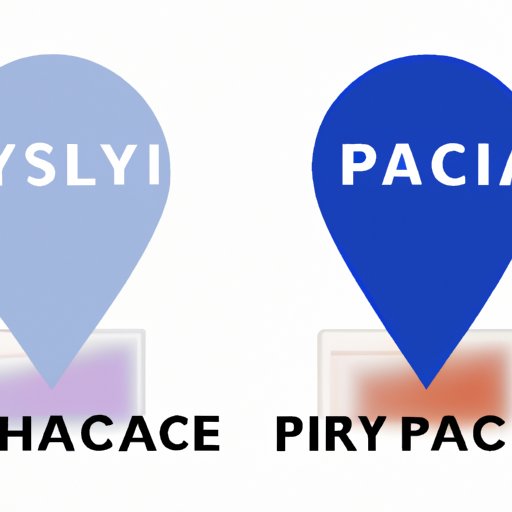
Introduction
When it comes to navigating the physical world, having a proper, well-formatted physical address is essential. It’s something many people take for granted in modern society, but understanding the basics of physical addresses can make all the difference in avoiding confusion, lost packages, and even emergency situations.
A Beginner’s Guide to Understanding Physical Addresses and Its Importance
A physical address is a location used to describe where a person or property is located. Often, this refers to a person’s home or a commercial building. Physical addresses are composed of several components, including:
- House number or building number
- Street name
- City or town name
- State or province name (if applicable)
- Postal code or zip code
These components are arranged in a specific order, with the house or building number first, followed by the street name, city, state, and finally, the zip code. It’s important to format a physical address correctly to ensure that it can be easily understood and located by mail carriers, emergency services, and others.
Breaking Down Physical Address: The Basics You Need to Know
Physical addresses are assigned and regulated differently depending on the location and jurisdiction. Generally, addresses are assigned by the government or postal service, although private organizations and utilities may also assign addresses. It’s important to understand the difference between a physical address and a mailing address – while they might be the same for most people, a mailing address may be used for locations that do not have a physical address, such as post office boxes or rural routes.
Fortunately, finding a physical address has never been easier, thanks to digitization and online directories. GPS technology can also assist in finding a physical address with ease.
Why a Physical Address Matters in Today’s Digital World
When it comes to online transactions, physical addresses play a crucial role. Shipping and billing information typically require a physical address, and this information is used to verify a person’s identity. In emergency situations, a physical address can be used to locate a person in need of assistance. In a world where much of our communication and commerce takes place online, it’s easy to forget the importance of a physical address – but it remains a vital part of modern society.
Beyond ZIP Codes: How Physical Addresses Work and What They Reveal
Physical addresses can reveal a surprising amount of information about a person or property. Geolocation technology uses physical addresses to pinpoint exact locations, and this information can be used for marketing purposes or even to infer sensitive personal details. Sharing physical address information online or with others can carry certain risks, particularly if it’s not done with caution.
The Power and Pitfalls of Physical Addresses in Business and Communication
In business operations, having a correct physical address can make all the difference. A business with an easily accessible and well-formatted address is more likely to attract clients and customers. On the other hand, privacy concerns have emerged around the practice of sharing physical address information in communication. As with any personal information, it’s important to be cautious and considerate when sharing your physical address.
Conclusion
While it may seem like physical addresses are a simple part of modern life, understanding their proper use and importance is essential. By taking the time to format your address correctly and being mindful of the risks in sharing your address information, you’ll be better equipped to navigate the physical world with confidence.
If you’re looking to learn more about physical addresses, the National Address Database is a great resource, which can tell you more about the standardization of physical addresses and how they’re assigned and regulated. As always, it’s essential to practice caution and mindfulness when sharing your personal information, including your physical address.





